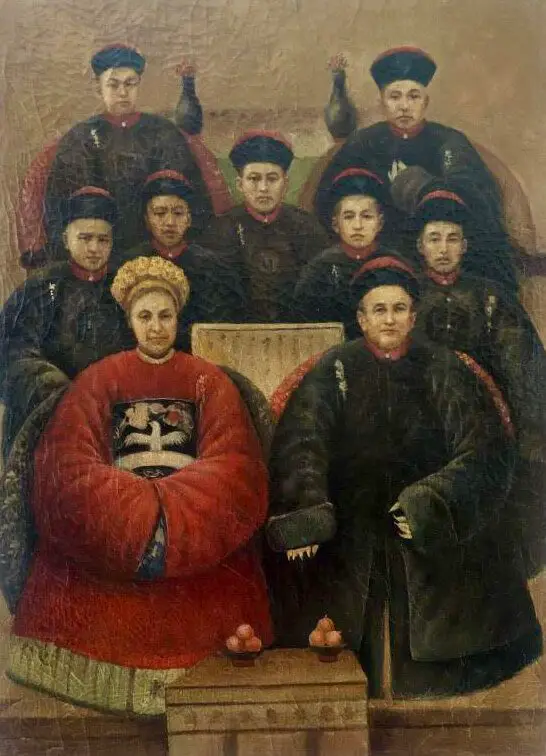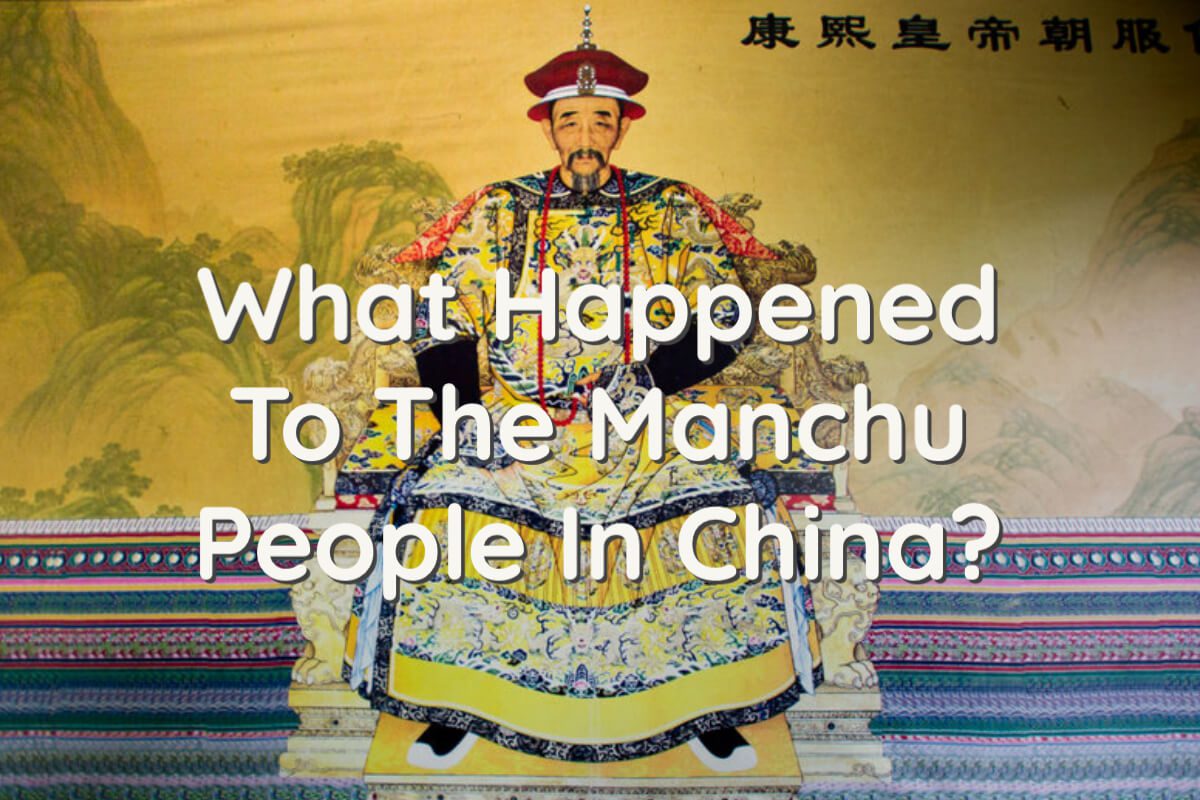The Manchu people ruled China for over 250 years, from 1644 to about 1911. Anyone who has watched the Last Emperor of China can understand a bit about the collapse of the Manchurian or Qing Dynasty in China. The Qing Dynasty was the last dynasty in China.
After the collapse of the Qing Dynasty, the Manchu people continued to live in China. The Chinese government categorizes the Manchu people as a Chinese ethnic group. It is estimated that just over 10 million Manchu ethnic minorities live mainly in Northeastern China. Many of the Manchus intermarried with Han Chinese. The Manchu have assimilated so well into Chinese society that today, not many people considered Manhu can speak the Manchu or Manchurian language.
Table of Contents
China Today – The Manchu People
Today, the Chinese government continues to identify the Manchu as a separate ethnic group. There are estimated to be at least 10.5 million Manchu people in China.
The Manchu ethnic group still lives mainly in northern China, including Liaoning, Jilin, Heilongjiang, and Heibei provinces. There are also many Manchu ethnic minorities in Beijing and the Inner Mongolia Autonomous Region. Today about half or about 5 million Manchus live in Liaoning Province n Northeastern China.
After the Manchus conquered China, many migrated down towards Beijing or the seat of the Qing Dynasty. Many Manchus left their estates and only used them as hunting lodges. Over time these estates were sold, broken up, or occupied by Han Chinese.
Over time, the Manchu bloodline has been watered down as many Manchurians have intermarried the Han Chinese. So, unlike many other Chinese ethnic groups, very few Manchus today can still speak the Manchu language. Today, only as few as a hundred people can even speak the Manchu language.
In 1895, Japan made Liaoning, where many Manchu lived, part of the Japanese empire. During this time, Korea was also part of the Japanese Empire. Many Manchus living under Japanese rule also lost much of their culture and language during this time.
The Manchu People And Their Contributions
The Manchu people ruled China for many years. The Manchus contributed many things to the Chinese culture. Many of these things have been integrated into China’s culture and life.
Here are some things that the Manchus are known for:
- Agriculture – For more than 2,000 years, the Manchu are agricultural people. They also raised animals.
- Expert Horsemen, Hunting, and Archery – The Manchus are known to be expert horsemen and hunters and very good at archery.
- Governance – Until the collapse of the Qing Dynasty, the Manchu were experts in controlling a large population of people. An example of this is how successful the Manchu Qing Dynasty was for hundreds of years.
- Pickled Vegetables – The winters are freezing in northern China, so the Manchu people eat a lot of pickled vegetables. This is similar to Korean cuisine, which eats kimchi.
- Hotpot – The Manchurians also eat hotpot, which usually includes mutton, pork, pickles, millet, soybeans, peas, and corn. They also like to grill meat and use soya sauce in their dishes.
- Three-Quarter Houses – Traditional Manchu houses are built with three quarters. There is a middle house that serves as a kitchen and another two wings that will have living and bedrooms.
- Heated Beds – The Manchus are also famous for their heated brick beds. These brick beds were heated during the cold winter months. They are on a raised platform called kangs.
- Embroidery and High Heels – The Manchu women had intricately embroidered silk clothes known as the “qipao.” The robes were long with baggy sleeves; the women would wear high heels to add to their height,.
- PIgtails and Braids For Men Hair – The Manchu means braiding their hair into a queue or pigtail. Many shaved their entire head except for the lengthy pigtail or braid. The Manchu forced the Han Chinese to adopt this hairstyle to show their loyalty to the Manchu Emperor.

Life As A Manchu Under The Qing Dynasty
The Manchurian Emperors of the Qing Dynasty believed in the patronage of the Chinese arts, scholarship, and culture. But despite all of this, the Manchurian Emperors made many attempts to prevent the Manchu people and culture from being absorbed into the Han Chinese culture and society.
While the Manchurians ruled China, here are some things that they wanted the Manchus to continue:
- Manchu Language – They wanted the Manchu people to keep the Manchu language. They urged the Manchu children to be given a Manchurian education.
- Discouraged Intermarriage – The Manchu emperors also discouraged the Manchu and Han Chinese from intermarrying. The Emperors wanted to keep the Manchu population as ethnically “pure” as possible.
- Social Integration – They discouraged social integration between the Han Chinese and Manchu. They wanted the Manchu to only socialize with the Manchurian population, not the Han Chinese.
The Manchurian Qing Dynasty’s efforts to separate the Manchurians from the Han Chinese later proved almost fruitless. The Manchu ethnic group, more than many other ethnic groups in China, has assimilated with the Han Chinese.
After the fall of the Qing Dynasty, the Manchus quickly adopted the Chinese language and customs and intermarried with Han Chinese. Today, few people speak the Manchu language.
At A Bus On A Dusty Road, we talk about everything about travel, life, and ex-pat living. We are all about “Living Life As A Global Citizen.” We explore social, cultural, and economic issues and travel.
We would love to have you be part of our community. Sign up for our newsletter to keep up-to-date by clicking here. If you have any questions, you can contact me, Anita, by clicking here.
Listen to our Podcast called Dusty Roads. You can find it on all major podcast platforms. Try out listening to one of our podcasts by clicking here.
Subscribe to our A Bus On A Dusty Road YouTube Channel filled with great videos and information by clicking here.
Related Content
What Is The Difference Between Manchu, Mongols, And Han Chinese People?
The Manchu people are traditionally from Northeastern China and traditionally speak a language called Manchurian. The Mongol people mainly live in Mongolia and in Inner Mongolia in China. They speak the Mongolian language.
On the other hand, the Han Chinese are the major ethnic group in China, Hong Kong, Taiwan, and Singapore. There are many dialects of Chinese spoken, but the significant dialects are Mandarin Chinese and Cantonese.
You can learn more by reading What Is The Difference Between Manchu, Mongols, And Han Chinese People? by clicking here.
What Are Some Lessons We Can Learn From Mongolian Nomadic Herders?
The Mongolian nomadic herders in the Gobi Desert taught me six important lessons about our community support importance. I learned some important lessons about our working together as a group and supporting our neighbors while also building a support team that will always be there for us – especially in time of need. For this to happen, we must each be willing to serve in our communities and work together.
You can discover more by reading our blog 6 Lessons On Community Support from The Mongolian Nomadic Herders by clicking here.

